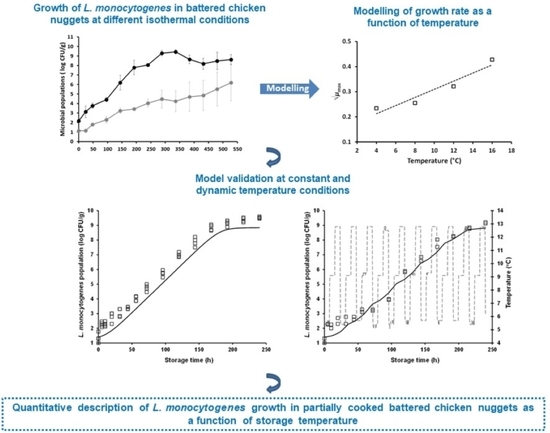A study conducted by scientists from the Agricultural University of Athens, the University of Patras in Greece and North Carolina State University and published in Foods 2021, 10(3), 533 studied the growth of Listeria monocytogenes in chicken nuggets. Battered poultry products, such as chicken nuggets may be wrongly regarded as ready-to-eat. Commercially prepared chicken breast nuggets were inoculated with L. monocytogenes and stored at different isothermal conditions (4, 8, 12, and 16 °C). The study found that uncooked, frozen, commercially prepared chicken nuggets could potentially promote Listeria growth over the course of their shelf life. L. monocytogenes may grow in battered chicken nuggets to levels potentially hazardous even under well-controlled refrigerated storage conditions. @ https://www.mdpi.com/2304-8158/10/3/533

